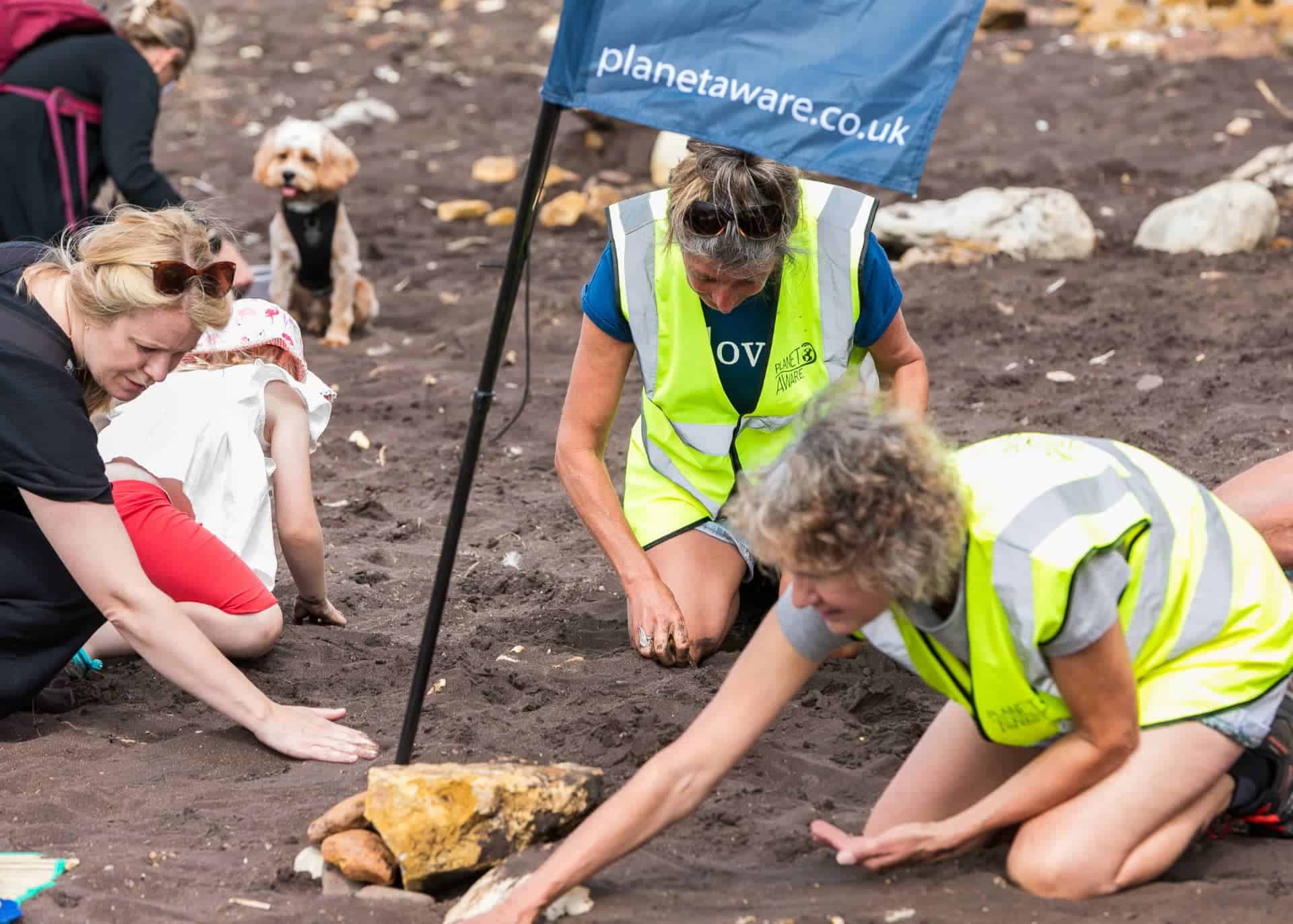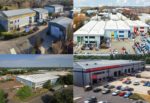Pete Johnstone shares his insight into hunting for nurdles on Brook Beach with members of Planet Aware IW. Ed
I wasn’t aware of what nurdles were until I met up with volunteers from Planet Aware IW on Brook beach, on the community group’s nurdle hunt.
Sarah Marshall, the group’s Chair, said,
“Lots of people are still unaware about what nurdles are and the staggering number that pollute our oceans and coastline.
“Many people are still completely unaware of this form of marine pollution. It is a local as well as a global problem.”
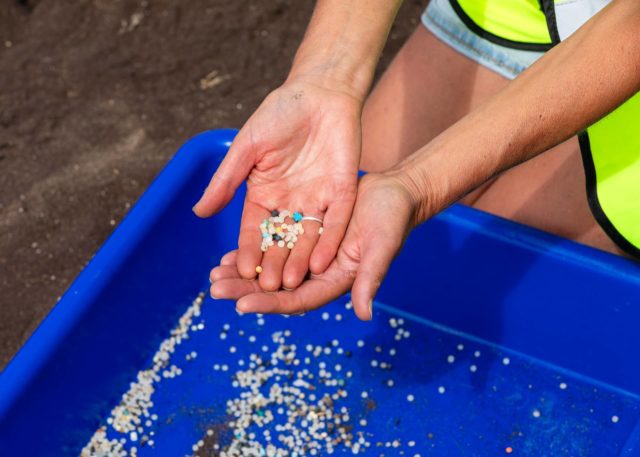
What’s a nurdle?
Sarah explained that nurdles are tiny plastic pellets about the size of lentils. They are the preproduction building blocks that get turned into plastic items in factories.
The nurdles are transported around the world’s oceans in container ships. Sadly, billions of pellets are lost when containers carrying them are lost overboard in storms for example or when ports and factories are not careful in packaging and handling the pellets.
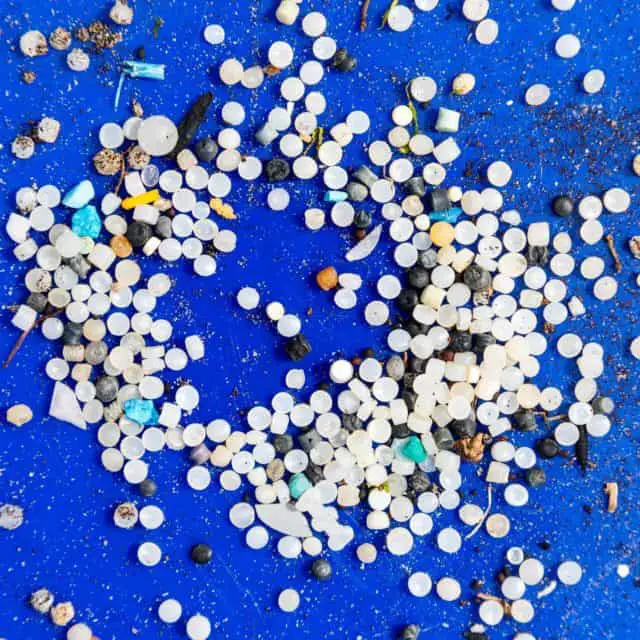
Impact on wildlife
On the shore and in the ocean, the pellets get mistaken for food by marine creatures and birds, and can block their digestive systems. There is evidence that the nurdles attract bacteria, heavy metals and other chemicals so, in a way, they are a toxic pill once swallowed.
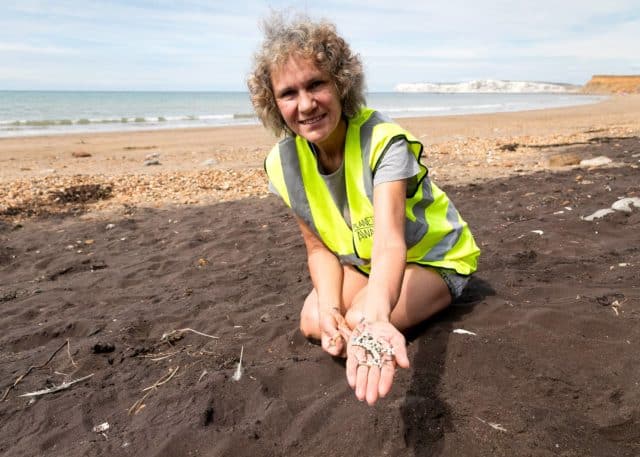
On the beach, Planet Aware volunteers, locals and holiday makers just out for a day were busy sieving the sand and finding hundreds of nurdles, other types of pellets and microplastic.
Contributing to positive action for the Ocean
Volunteers Sanna and Andrew agreed,
“It can all seem a little daunting as the pollution is on a massive scale.
“By clearing some of the pellets and more importantly, sharing the survey data with FIDRA, an organisation pushing for change in the way nurdles are handled and transported, we feel we are doing our bit and contributing to positive action for our Ocean.”
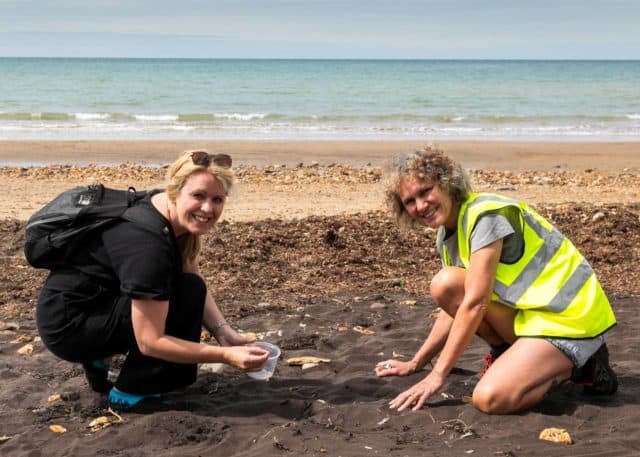
Marshall: We need to halt the tide of single use plastic
Sarah said,
“Being on the beach is a good way of talking with people and sharing ideas on reducing our own plastic and resource use. We need to halt the tide of single use plastic that is all around us but also make informed choices about this and that isn’t always easy’.
“We will be continuing with regular nurdle surveys and it’s great that visitors to the beach are pleased to have contributed even if for a short time during their time on the beach.
“Weirdly there is something quite relaxing about sitting and looking out to sea whilst sifting the sand.”
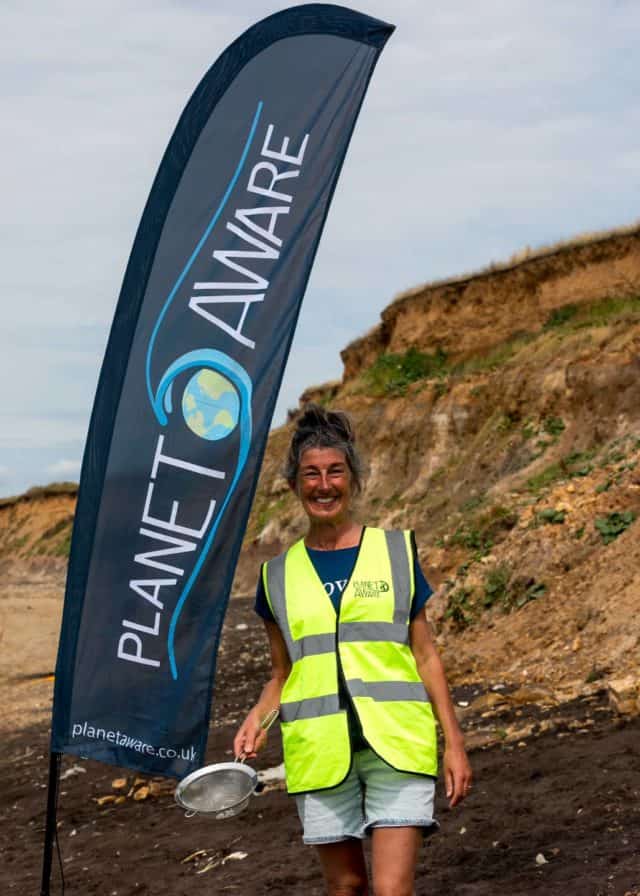
What is Planet Aware?
The volunteers explain that Planet Aware is an Isle of Wight community group. Their group’s goals are to raise awareness of why the Ocean is so vital to our everyday lives and to consider ways in which we can reduce our impact day to day.
Volunteers help reduce coastal and marine pollution, particularly plastic, through regular beach litter picks, surveys and educational/awareness raising activities.
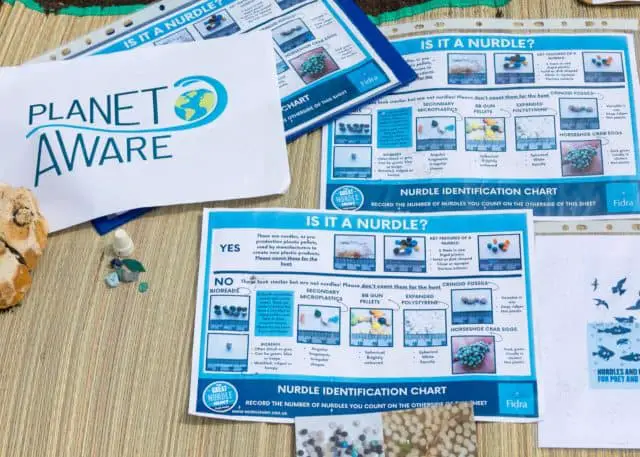
Marshall: Our choices all impact the ocean
Sarah said,
“The choices we make day today, our resource use and the waste we produce, all impact our ocean. Despite the ocean being vital to our life on this Planet, we have created so many pressures and challenges that ocean health is suffering.
“Whilst we wait for global agreements and policies (which would make the biggest impact), we can all do something, however small it seems, towards creating positive change. We live on an Island, surrounded by sea and we are now a Biosphere Reserve so there should be plenty of impetus for change.”
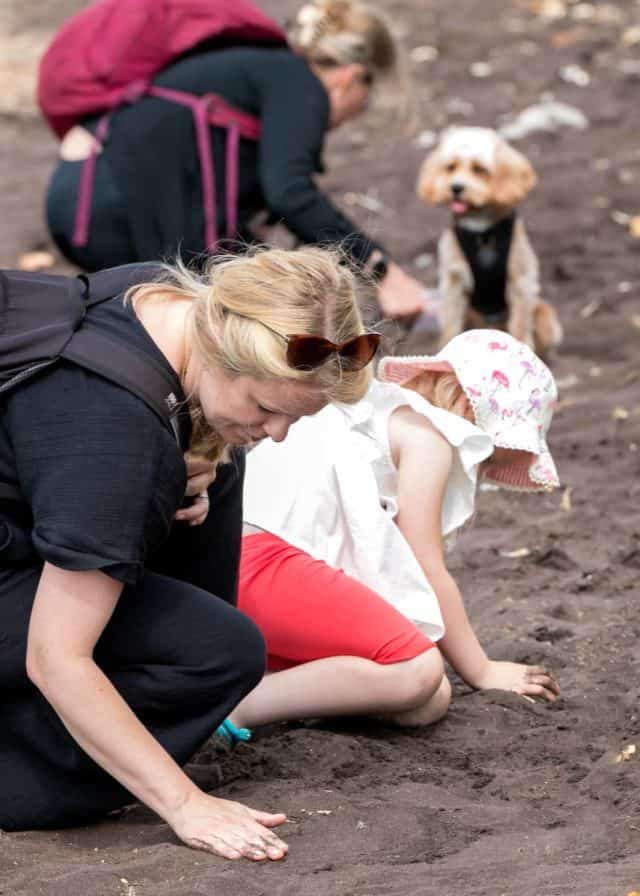
The group have a guide to collecting nurdles on their Website and are always looking for volunteers with relevant skills and/or time and motivation to help out. You can get in touch via [email protected]
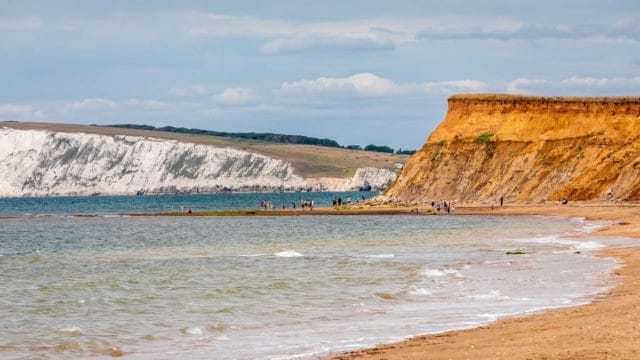
West Wight People and Place
I took the photos and compiled the story as part of my West Wight People and Place project where I’m photographing people living and working in this part of the Island and who are contributing to the environment.
You can see some of the stories on the Island’s Biosphere Reserve Website

